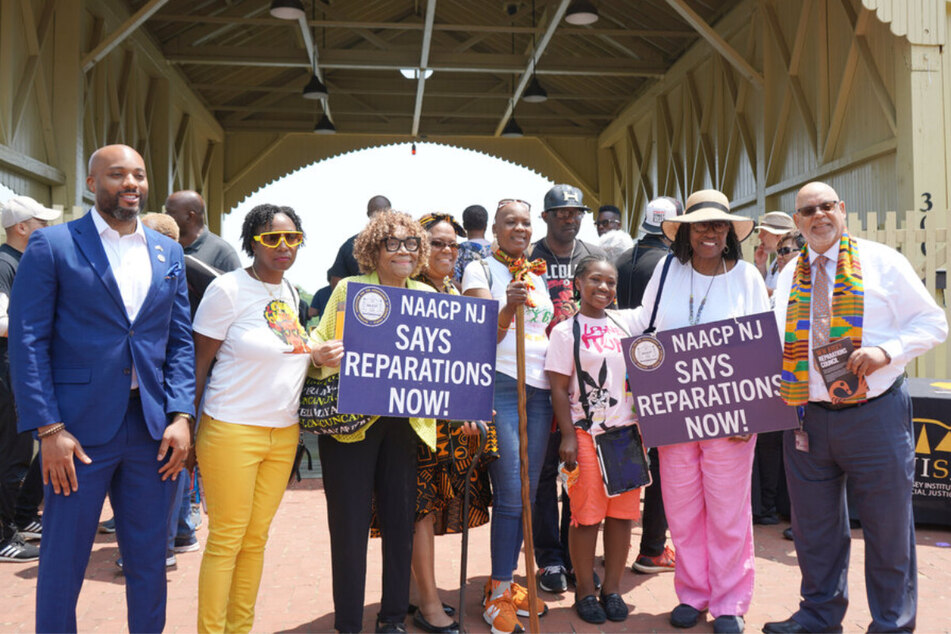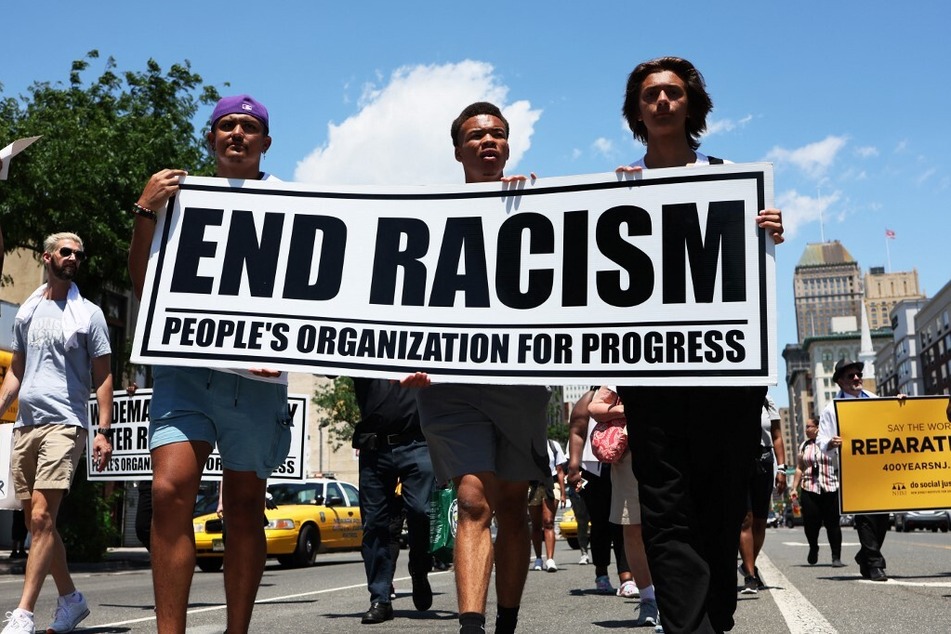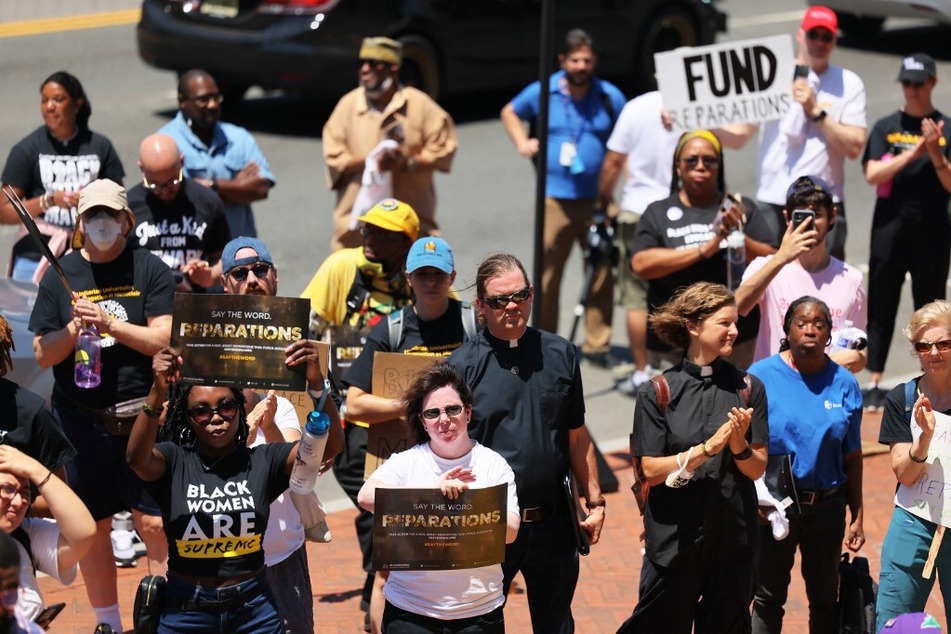New Jersey Reparations Council demands bold action on housing and education
Newark, New Jersey - The New Jersey Reparations Council's second virtual public session featured powerful testimonies on the impact of continued segregation, particularly in housing and education.

The New Jersey Reparations Council, convened by the New Jersey Institute for Social Justice and launched on Juneteenth 2023, held its second of nine public sessions on Monday. The online meeting brought together local, state, and national experts with members of the public to examine historic and ongoing racial segregation.
The council's first session laid the groundwork for the discussion by outlining New Jersey's legacy of enslavement, from its inception as a European colony in the 17th century to its ratification of the 13th Amendment.
The eventual abolition of slavery did not put a stop to rampant discrimination in the Garden State, nor was it any less insidious than Jim Crow apartheid in the American South.
In fact, the roots of the today's racial wealth gap, topping $300,000 in New Jersey, may be traced, in part, to policies put in place in the immediate aftermath of World War II, when the federal government invested in a series of massive programs to extend possibilities for homeownership.
"This is really the beginning of the explosion of the American Dream for most American families and families in New Jersey, who then were able to acquire their own homes in the suburbs and build that intergenerational wealth which has benefited them ever since," explained David Troutt of Rutgers Law School at the session on Monday.
The problem: Black Americans were, by and large, barred from participating in those programs.
Exclusionary zoning laws in New Jersey, enforced through each municipality's local police powers, made matters worse by ensuring the homes Black people could afford would not be constructed in particular areas. It just so happens those neighborhoods tended to have predominantly white populations.
"Exclusionary zoning, because it was race neutral on its face, has been far more powerful than racially specific Jim Crow segregation in the South. While most of that was overturned in the Civil Rights Movement, exclusionary zoning has proved to be powerfully resilient against any kind of legal attack," Troutt said.
"This is why we still experience tremendous racial discrimination in a highly suburbanized state like New Jersey."
Segregation in housing in New Jersey

The session continued to examine how disparities in housing and homeownership continue to be one of the primary drivers of the racial wealth gap in New Jersey, despite more recent efforts to expand accessibility.
The Mount Laurel doctrine, the result of a 1975 New Jersey Supreme Court case, requires that municipalities use their zoning powers to guarantee a fair share of housing affordable to low-income and moderate-income families.
Enter regional contribution agreements (RCAs): deals that allowed one municipality to transfer a portion of its affordable housing obligations to another and, thereby, protect the concentration of white wealth.
RCAs were finally overturned in 2008, enabling the construction of affordable housing units in previously inaccessible areas. Despite that progress, segregation and discrimination in housing remain deeply entrenched in New Jersey and demand bold, comprehensive policies to reverse the harms.
"We can continue to advocate for all the affordable housing, we can dismantle exclusionary zoning, we can do away with RCAs, but the field goal post keeps moving," said James Williams IV, director of racial justice policy at the Fair Share Housing Center. "Racism is an evolutionary practice. It doesn't stay constant."
Nevertheless, housing justice is essential to undoing the legacies of enslavement and racial discrimination.
"Housing fundamentally sits at the center of where all of us breed our success, where success starts to come from. Schools, health care, jobs – all start from housing," Williams argued.
"Housing has existed since we came over on ships and they started to erect slave shacks, so we know that housing is at the fundamental center of where we grow, where we heal, and how we become the full person we want to be."
Segregation in education in New Jersey

Segregation in housing has also resulted in racial injustices at all levels of New Jersey's education system, thanks to formulas which link the amount of funding schools receive to property values in the district, the session continued to explore.
"Even though New Jersey is known as being a state with very high educational levels, that isn't experienced equally by all of its students," said Dennis Parker, executive director of the National Center for Law and Economic Justice.
In fact, New Jersey is recognized as the sixth most-segregated state for Black students.
Leticia Smith-Evans Haynes, vice president for institutional diversity, equity, and inclusion at Williams College, said this damning statistic traces back to resistance to implementing Brown v. Board of Education.
In the aftermath of the 1954 Supreme Court decision, schools closed in some communities while private institutions opened in others – all in an effort to keep Black students out, Haynes explained. The push to integrate schools also coincided in the 1970s with a rise in disciplinary measures against and emotional and behavioral disorders attributed to Black students.
This discipline gap, along with the systemic denial of equal resources, has resulted in less-experienced instructors, lower-quality curricula and programs, and worse educational outcomes for students in majority-Black and brown schools.
Together, these factors "literally serve to segregate students, and in some instances, to push them out of the classroom and schools altogether and into the juvenile and criminal justice system," Haynes said.
The case for reparations in New Jersey

Throughout the session, expert panelists illustrated how federal, state, and local governments are complicit in the ongoing oppression of Black New Jerseyans.
"These were deliberate choices that were made to create a segregated America and to create the wealth inequality that we see today, that we also see no sign of it closing," emphasized Jacob William Faber, associate professor of sociology and public service at NYU.
"There is a moral responsibility that government at all levels must take to redress these wrongs," he added.
Until that happens, the pervasive impacts of systemic injustice will continue to permeate every aspect of Black life in New Jersey, severely limiting not only opportunities for economic advancement but also for relaxation and full enjoyment of life.
Lawrence Powell, a Somerset resident and NAACP member, told the committee, "What concerns me is last summer, I took a ride down to Atlantic County, and it seems like there is big segregation that happens between Atlantic County and Cape May County. That really troubled me because I would like to smell the ocean breeze, breathe the ocean breeze also."
The next New Jersey Reparations Council session on Faith and Black Resistance is scheduled for January 11. State residents are invited to make their voices heard by submitting public comments at any time on the council's website.
Cover photo: TAG24/Rey Harris



